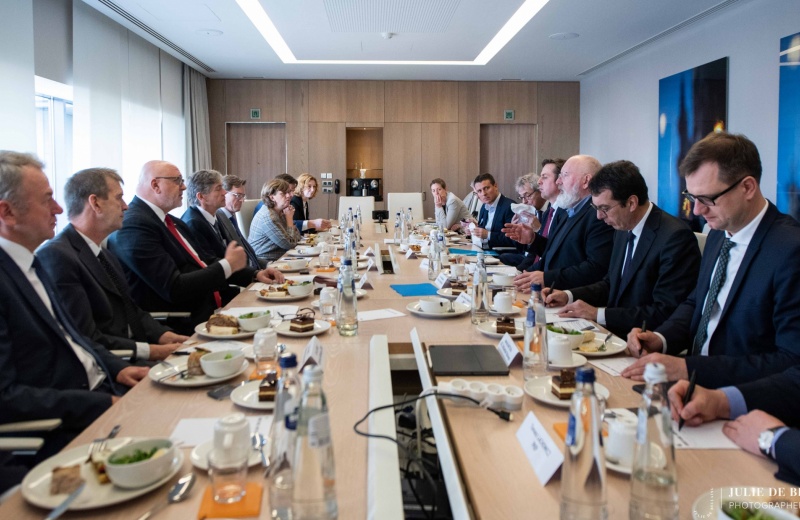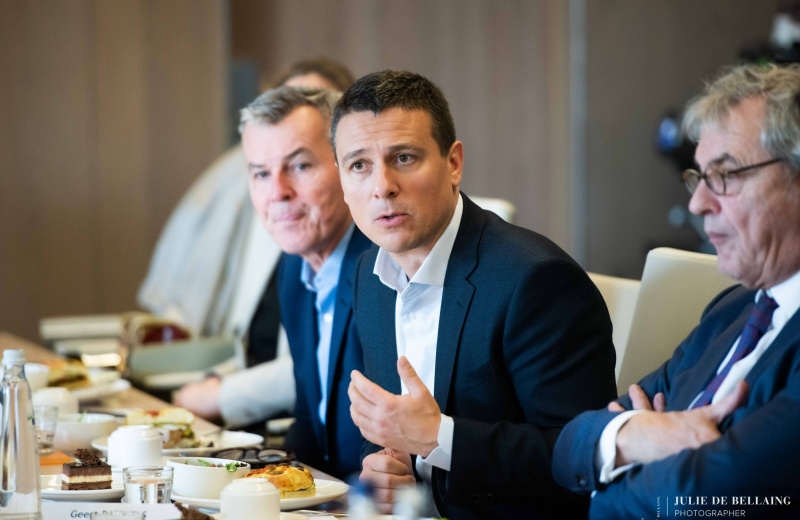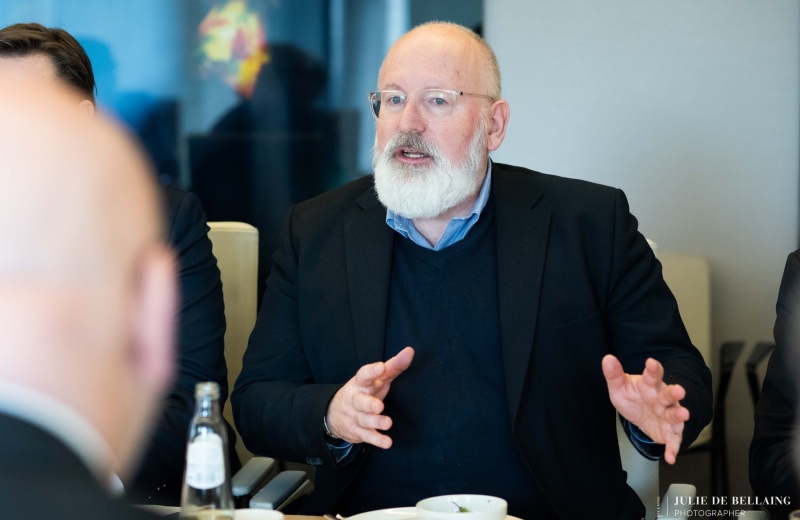The European Green Deal, published by the European Commission in December, recognises the role of rail in greening European transport. European Commission Executive Vice-President Frans Timmermans joined a high-level meeting of European rail CEOs, organised by the Community of European Railway and Infrastructure Companies (CER), to kick–start the cooperation.
From the exchange many points arose, among which the many challenges that lie ahead in terms of channeling the Green Deal’s ambition in a wide range of different policy areas, such as infrastructure financing and capacity, digitalisation and the intermodal regulatory playing field, including the need to correct the legislative imbalances which are preventing sustainable modes from triggering their full potential. The CEOs reaffirmed the commitment of the sector to continue investing in safe, sustainable and customer-oriented passenger and freight services that contribute to emission-free mobility.
On rail freight in particular, the CEOs re-affirmed their ambition to double rail freight volumes by 2030 and to increase the modal share of rail freight from 18% today to 30% by 2030. To achieve this, they underlined the importance of keeping a European approach to rail freight. In this context, the EU corridor approach (with the upcoming revisions of the TEN-T and Rail Freight Corridors regulations) can add additional momentum and support to the rail freight sector. Support to research and innovation will also be key to ensure that the capacity of rail network is sufficient to welcome a much needed modal shift from trucks to trains.
Both parties agreed to work together to foster the perception of railways as a key enabler of the European Green Deal objectives and to draw attention to the policies needed to achieve the European Green Deal’s ambitions in the transport sector.



